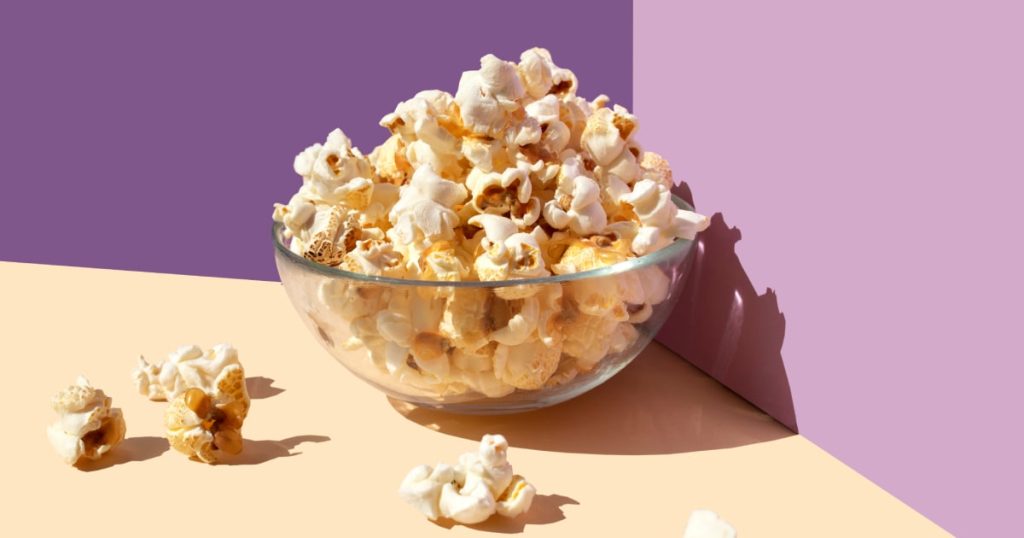Popcorn is a popular snack known for its crunchy texture and satisfying taste, but the health benefits can vary depending on how it is prepared and what toppings are added. Popcorn is a whole-grain snack derived from corn, which expands and puffs up when heated. It is classified as a fruit, vegetable, and whole grain, depending on when it is harvested. Popcorn is a good source of fiber, protein, vitamins, minerals, and antioxidants, making it a healthy snack option when eaten in moderation as part of a balanced diet.
The nutritional content of popcorn can vary based on how it is prepared and the toppings added. A serving of air-popped popcorn contains approximately 100 calories, 3 grams of protein, 18 grams of carbohydrates, 1 gram of fat, and 3-4 grams of fiber. Popcorn is also rich in antioxidants like polyphenols and carotenoids, which contribute to better digestive health and improved blood circulation. Additionally, popcorn is low in calories, fat, and sugar, making it a nutritious snack that can help with satiety and weight management.
While popcorn is considered a carbohydrate, it is a complex carb that takes longer to digest and does not significantly spike blood sugar levels. The fiber content in popcorn helps slow digestion and control blood sugar, making it a suitable option for those looking to manage their carb intake. However, the nutritional value of popcorn can change depending on how it’s prepared and the toppings used. Air-popped popcorn is the healthiest option, as it does not contain added fats or oils. Unsalted popcorn is also recommended, as excess sodium can reduce its health benefits.
In contrast to chips, popcorn is generally considered a healthier snack due to its higher protein and fiber content, lower calorie and fat content, and whole-grain nature. While both popcorn and chips are popular snack choices, the nutritional value can vary significantly depending on ingredients and preparation methods. Healthy popcorn toppings include spices, herbs, and nutritional yeast, which add flavor without extra calories, sugar, or salt. It’s important to be mindful of the toppings and cooking methods used to maintain the health benefits of popcorn as a snack option.
In summary, popcorn is a healthy snack choice when prepared in a nutritious way and eaten in moderation. It is a good source of fiber, protein, vitamins, minerals, and antioxidants, making it a satisfying and nutritious snack option when enjoyed as part of a balanced diet. By choosing air-popped popcorn with minimal toppings, such as unsalted seasonings and healthy oils, individuals can enjoy the health benefits of this whole-grain snack while avoiding excess calories, fats, and sodium.













